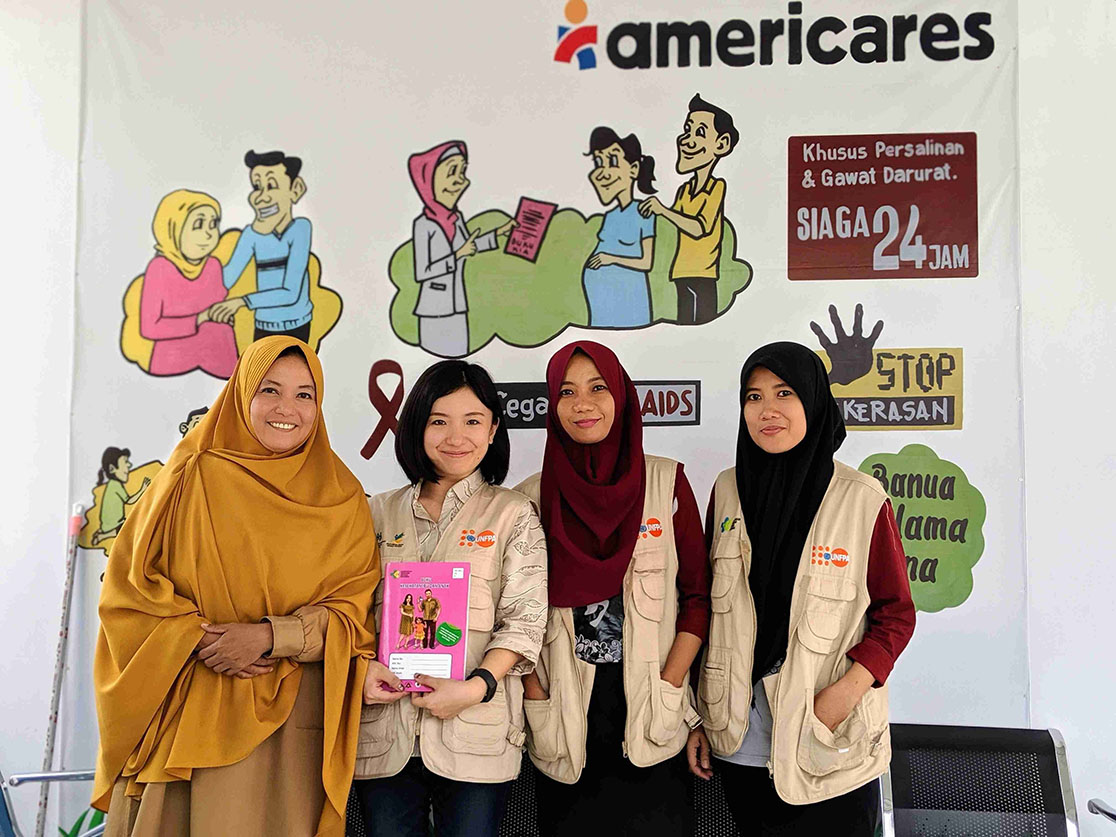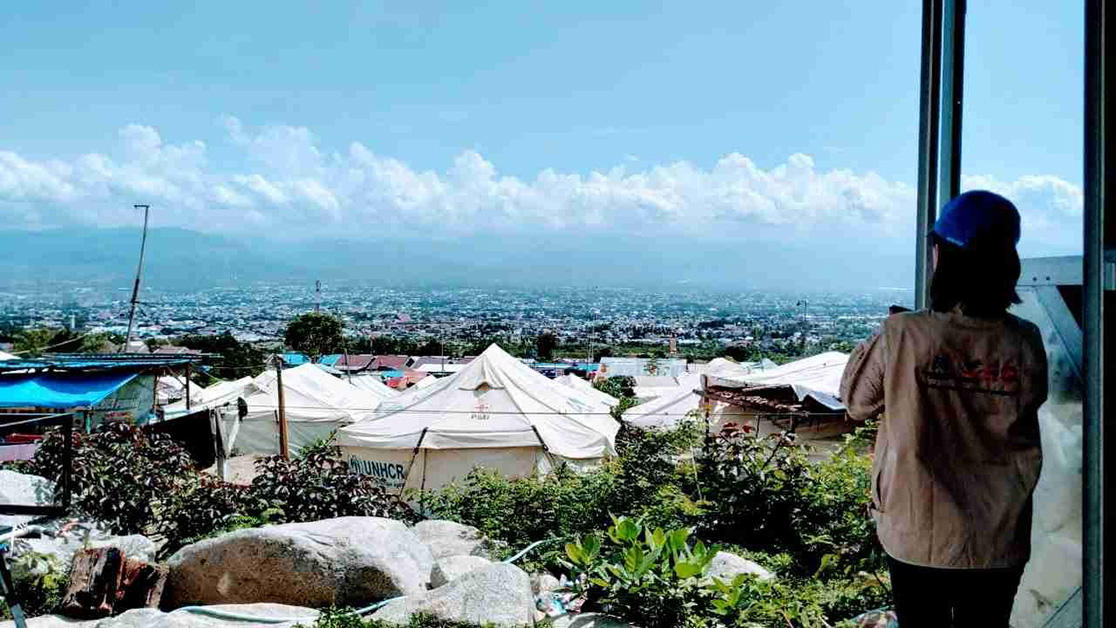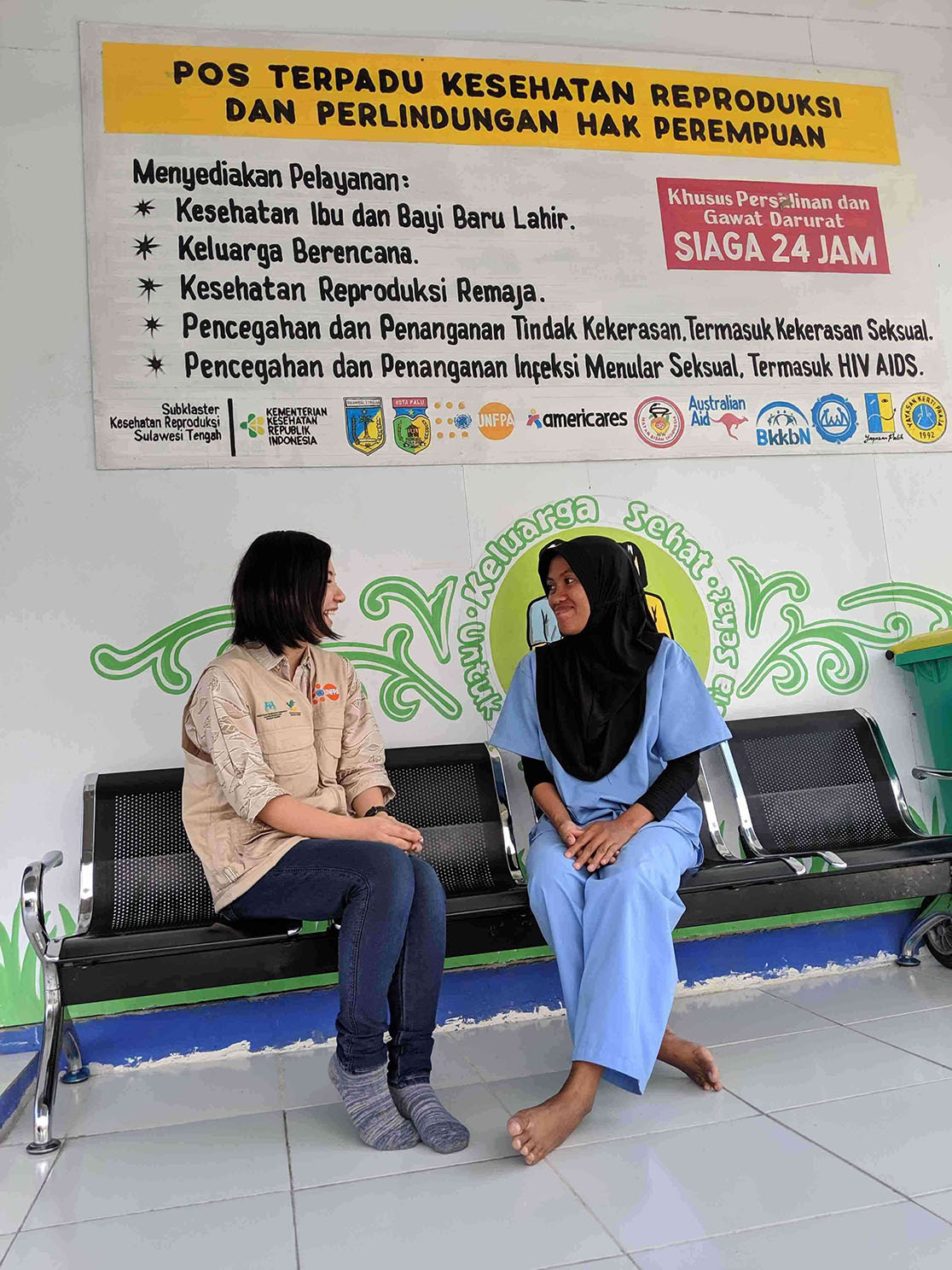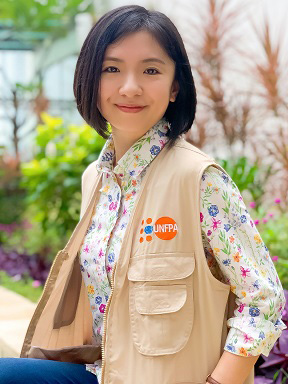
Alumna Megumi Uchino FLA/FCC ‘09 was a Dean’s Honor Recipient during the 2006-2007 school year. Now she works for the United Nations Population Fund (UNFPA) in Jakarta, Indonesia. She delivered a presentation to FLA students on “Navigating Your Career Path toward the United Nations” in 2019. The FLA office recently spoke with Megumi about her work to protect and empower women and girls amid the COVID-19 crisis. She also offered advice to students on getting the most out of their time at Sophia University.
I serve as a Humanitarian Programme Analyst for the UNFPA in Indonesia. As a UN agency responsible for sexual and reproductive health, we work closely with the government of Indonesia to pursue our mission of “delivering a world where every pregnancy is wanted, every childbirth is safe, and every young person’s potential is fulfilled”. Specifically, we operate in the areas of reproductive health, youth, population and development, and gender equality. My role as a Humanitarian Programme Analyst is to support UNFPA humanitarian responses toward disasters in Indonesia, by liaisoning with relevant government, UN and non-UN humanitarian partners in the country. I have a social work background and mainly contribute to supporting the prevention of and response to gender-based violence (GBV) in emergencies and protection of older persons, along with external communications and resource mobilization.

Women already face staggering inequalities at the best of times. Pandemics worsen existing inequalities and women and girls are suffering more now. Let me give you an example. Women continue to get pregnant and give birth during a pandemic. However, sexual and reproductive health services are being severely impacted—health systems are becoming overloaded, resources are diverted, and global supply chains are disrupted. Also, evidence from prior outbreaks indicates that women and girls face higher risks of intimate partner violence and other forms of domestic violence due to heightened tensions in the household. The financial impact of epidemics also increases the risk of other forms of gender-based violence, such as sexual exploitation and abuse. UNFPA is working with governments and partners to prioritize the needs of women and girls of reproductive age, especially in countries with weak health systems or humanitarian crises. Especially, we are focusing on strengthening health systems, ensuring the supply of personal protective equipment for health worker and modern contraception, and supporting the continuation of sexual and reproductive health and family planning services as well as COVID-19 infection prevention measures. We also provide technical advice for the continuation of the services for the GBV survivors.
I still remember the day I set foot on the Ichigaya Faculty of Comparative Culture (FCC) campus. Instantly, I fell in love with the international and multicultural ambience. As I aspired to work in an international setting, I chose the FCC to “study IN English” not “study English.” Also, the liberal arts curriculum allowed me to explore my interests through a whole range of classes in philosophy, religion, political science, sociology, and business. Moreover, while the FCC workload was very demanding, it equipped me with critical thinking and effective writing skills, which greatly helped me in my professional career as well as my pursuit of a master’s degree from Columbia University.

I still remember the day I set foot on the Ichigaya Faculty of Comparative Culture (FCC) campus. Instantly, I fell in love with the international and multicultural ambience. As I aspired to work in an international setting, I chose the FCC to “study IN English” not “study English.” Also, the liberal arts curriculum allowed me to explore my interests through a whole range of classes in philosophy, religion, political science, sociology, and business. Moreover, while the FCC workload was very During my time at FCC, I took “Introduction to the Field Methods” taught by Professor David Wank. In the class, I was tasked to conduct semester-long research on a professional to explore and study their microculture. It was my first experience of research design and implementation, including writing a research proposal, collecting data through sets of interviews, analyzing data, and developing a paper. In my current role, I often conduct or supervise research on the ground, and the methods I learned from Professor Wank are critical to the process. Another class was “Sociology of Gender and Sexuality” taught by Professor James Farrer. It was my first encounter with the notion of gender and sexuality, and I am grateful to Professor Farrer as I would not have pursued my career in gender and development without his teaching.
My advice to FLA students is to use as many resources as FLA and Sophia University have to offer. During my time in FLA, I never failed to go to the writing center every week and visit my professors during office hours. As someone with little prior experience studying in English (“Jun Japa”), I knew I had to work harder compared to international students or students graduating from international schools in Japan. I also took many classes outside of FLA, especially to deepen my understanding of gender and international development. I also partook in university programs such as the short exchange program to Sciences-Po in France and volunteer activity in Cambodia. Through FCC alumna’s introduction, I spent my summer working for NGO Ashinaga where I encountered lifelong friends and mentors who led me on the path to become a social worker and work in international development. In today’s world, more than ever, we need people with diverse backgrounds and perspectives to solve complex and unprecedented global issues. I sincerely hope that you will enrich every moment of your time in FLA by seeing the unseen and knowing the unknown, and join us in making the world a better place, embodying the mission of Sophia University, “Men and Women for Others, with Others”.

Megumi Uchino ’09, FCC (Sociology and Political Science) Megumi currently serves as a Humanitarian Programme Analyst at United Nations Population Fund (UNFPA) in Indonesia. She has led various women’s empowerment projects, especially in the field of access to finance and sustainable livelihood. She possesses more than 10 years of experience in professional settings, empowering displaced, rural, and elderly women through programs and policies, and has worked with for-profit, non-profit, international and government organizations in East Asia, Southeast Asia, North America, and South America.
